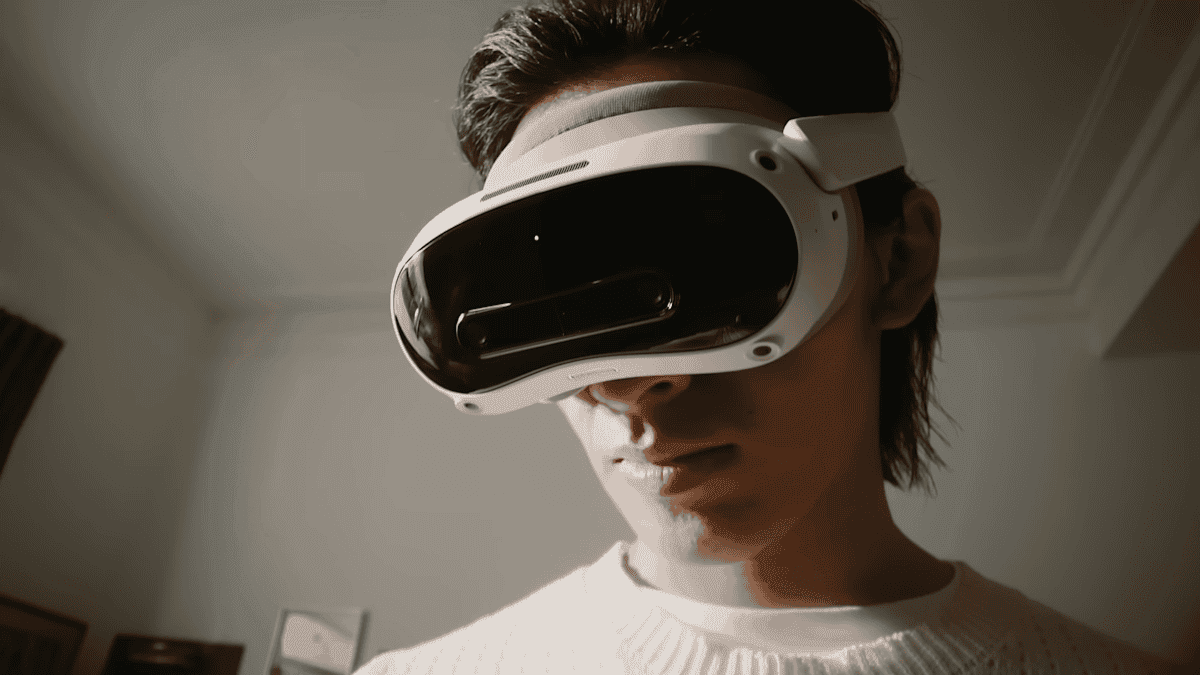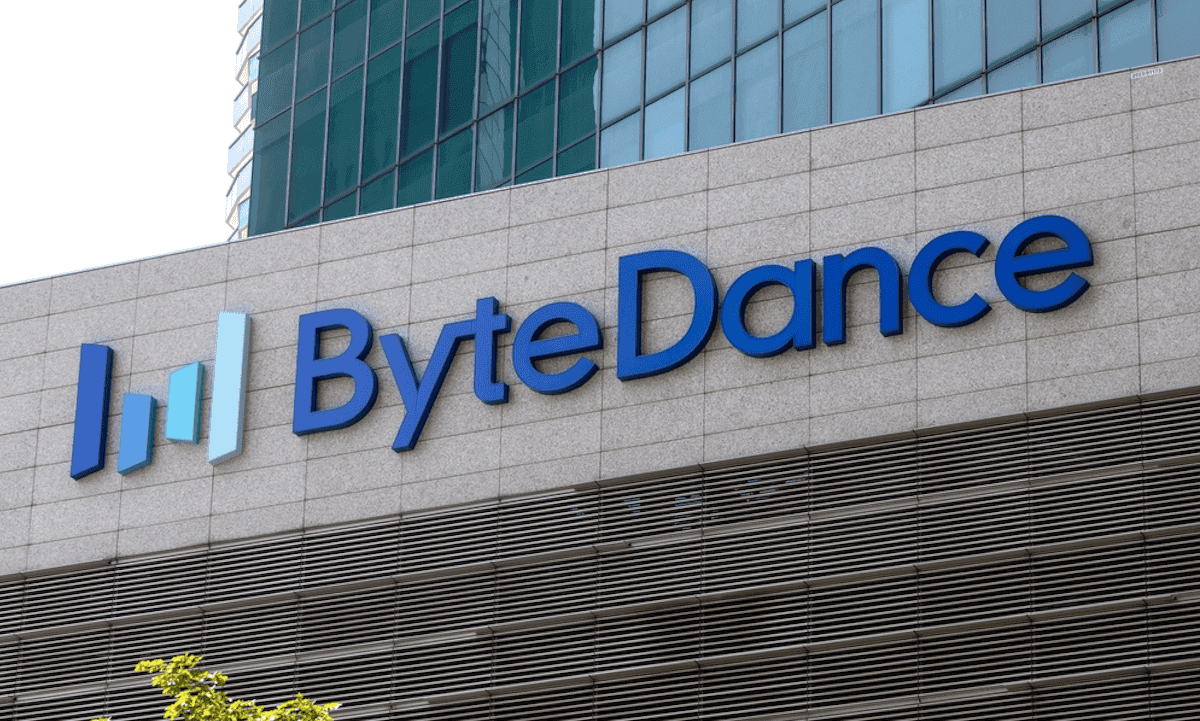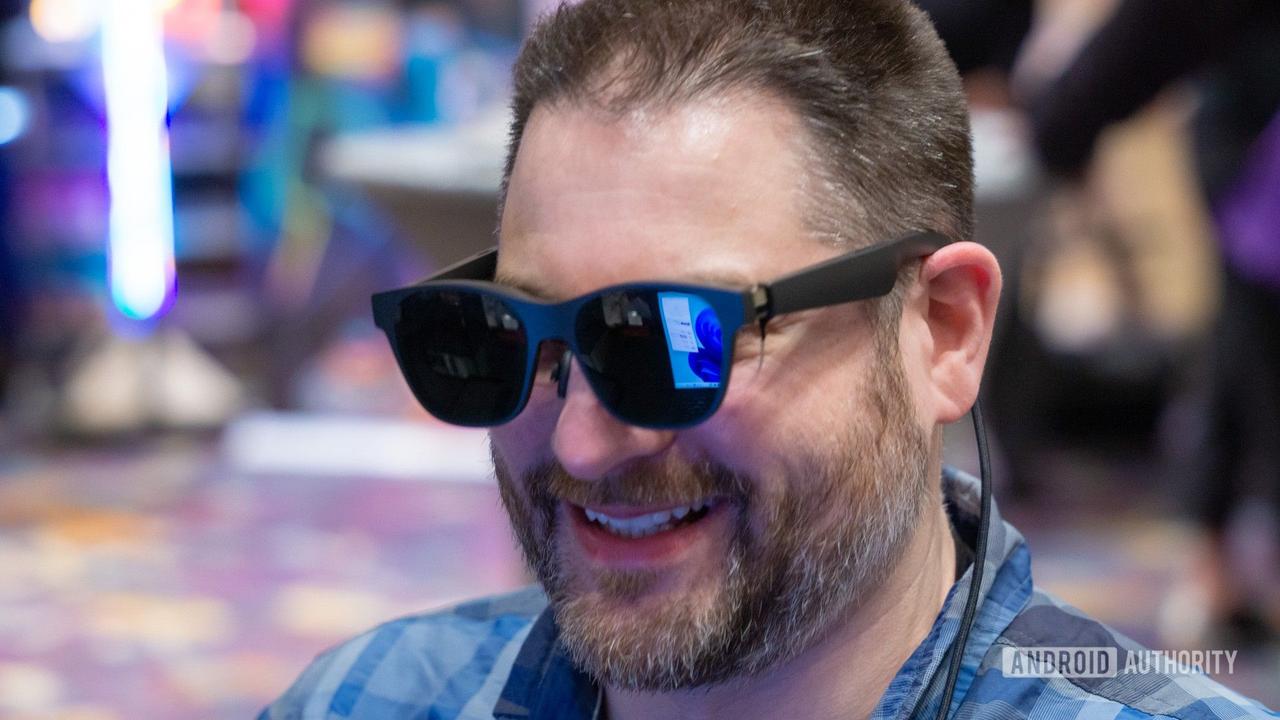ByteDance Ventures into Mixed Reality with Lightweight Goggles, Challenging Meta's Dominance
4 Sources
4 Sources
[1]
TikTok owner ByteDance is reportedly building its own mixed reality goggles
ByteDance, the parent company of TikTok, is reportedly working on mixed reality goggles, The Information reports. The in-development device is designed to layer digital objects over your view of the real world, and is supposed to compete directly with Meta's upcoming mixed reality products. The goggles are being built by ByteDance's virtual reality startup Pico, the creators of the Pico 4 VR headset. Pico's past products have attempted to match Meta's Quest headsets in terms of features, but these new goggles apparently represent a different approach (albeit one still positioned as an alternative to Meta). Rather than a bulky headset, the goggles are supposed to be small and light, about the size of the Bigscreen Beyond VR headset, which weighs 0.28 pounds. Pico is keeping the device lightweight by offloading most of the computing work to a puck that's connected to the goggles over a wire. Meta's prototype Orion AR glasses used a wireless puck for a similar weight-saving purpose when the company demoed them in November 2024. Pico is also reportedly working on building "specialized chips for the device that will process data from its sensors to minimize the lag or latency between what a user sees in AR and their physical movements," The Information writes. Plenty of the details are still up in the air, but the report notes that the ByteDance / Pico goggles should be very similar to Meta's next mixed reality device. Following the release of the Quest 3S, Meta reportedly postponed work on the Quest 4 in favor of developing lightweight mixed reality goggles, according to UploadVR. The company has been publicly pushing AI wearables like the newly introduced Oakley Meta HSTN glasses, and it seems like its next Quest device will be closer to smart glasses than a VR headset with controllers. It's not known when ByteDance's goggles will actually be released or where they'll be sold. Current Pico headsets aren't sold in the US, and given the concern over ByteDance's ownership of TikTok, it seems unlikely the company would be able to sell a mixed reality device without pushback.
[2]
TikTok parent ByteDance reportedly developing its own XR glasses
Outside of AI, the hottest thing in tech these days seems to be smart glasses. We've known for a few months now that Meta is working on XR glasses, internally codenamed Phoenix (previously codenamed Puffin). Not to be confused with Orion, which is the social media giant's AR glasses project. According to a new report, it looks like rival ByteDance has decided to follow Meta's footsteps and create its own XR device. Sources close to the matter have told The Information that TikTok's parent company is developing a lightweight mixed reality device that resembles a pair of goggles. These goggles will reportedly be tethered to a pocketable puck that may double as a power source and computational device. Additionally, it appears that the company is working on developing specialized chips that will minimize the latency between what the user sees and their physical movements.
[3]
TikTok owner ByteDance reportedly explores its own mixed-reality headset
The market for mixed-reality headsets has been decidedly, well, mixed so far, but ByteDance seemingly thinks there's room for growth. The Information reports a subsidiary of the TikTok owner is working on a mixed-reality device that would layer objects over your real world view. Pico, which made the Pico 4 VR headset, is reportedly overseeing the creation of the goggles, which would compete with the Meta Quest and, to a lesser extent, Apple's Vision Pro. Unlike Apple (and current Quest products), the Pico goggles are said to be small and lightweight, but aren't blended into fashion devices, like Meta's tie-in with Ray Ban and Oakley owner EssilorLuxottica or Snap's AI Spectacles. ByteDance and Pico are building "specialized chips for the device that will process data from its sensors to minimize the lag or latency between what a user sees in AR and their physical movements," according to The Information. But many other details are still unknown. Pricing hasn't been discussed and it's still uncertain if ByteDance will target the U.S. market with these goggles, assuming they're ultimately released. Pico's other headsets are not sold in North America and ByteDance and the Trump administration have an uneasy relationship at best. TikTok has already been banned by the U.S. government, but Trump has paused the enforcement of that ban several times, hoping to secure a U.S. buyer for the social network. Over two weeks ago, Trump said he had found a group of "very wealthy people" to buy TikTok, but has not yet revealed who they are (despite promising to do so). ByteDance has been resistant to selling TikTok and has not made any public statements about Trump's claim.
[4]
ByteDance Reportedly Follows Meta Into the Mixed Reality Realm | PYMNTS.com
By completing this form, you agree to receive marketing communications from PYMNTS and to the sharing of your information with our sponsor, if applicable, in accordance with our Privacy Policy and Terms and Conditions. That's according to a report Monday (July 14) from The Information, citing three sources with direct knowledge of the Chinese company's efforts. As the report notes, this shows ByteDance following the efforts of Meta, which is working on a similar device scheduled to come out in 2027. These devices employ the concept of mixed reality, letting people overlay digital images on top of real-world surroundings, for work or entertainment purposes. These goggle-like devices mark a change from the mixed reality deployed by headsets companies like Apple and Meta, to muted reaction from users. The Information report argues this shift shows consumers would prefer to wear lighter-weight glasses, even if these devices don't do as much as headsets. Meta canceled its Quest headset last year to work on its goggles-style device, known as "Phoenix." It has also rolled out a pair of smart glasses in partnership with Ray-Ban, an offering that, per The Information, has sold well. ByteDance, the report said, had -- through its mixed reality hardware division, Pico -- been scaling back its augmented reality (AR) and virtual reality (VR) efforts due to weak sales. In 2023, the company canceled the scheduled launch of its new flagship VR headset to focus on a new initiative to develop more ambitious products. The news comes days after reports that Meta had purchased a roughly 3% stake -- worth around $3.5 billion -- in eyewear maker EssilorLuxottica, which makes Ray-Ban and Oakley glasses and is one of Meta's partners in the smart glasses business. Meanwhile, Google said in May that it expects smart glasses equipped with its extended reality (XR) operating system, Android XR, and its AI model, Gemini, to become a convenient and ever-present AI assistant. The firm made this prediction as it announced a collaboration with eyewear brands Gentle Monster and Warby Parker to create Android XR-equipped glasses that are stylish and comfortable enough to wear all day. "What if your AI assistant could see the world from your perspective and offer hands-free help? That's the vision driving our latest advancements in Android XR," Shahram Izadi, vice president and general manager, Android XR at Google, wrote on the company blog. "It's the first Android platform built in the Gemini era, and it powers an ecosystem of headsets, glasses and everything in between." PYMNTS wrote in February that smart glasses were enjoying a boom, with the newest versions are powered by AI and encased in traditional frames of various styles, ensuring wearers don't look out of place in public.
Share
Share
Copy Link
ByteDance, TikTok's parent company, is reportedly developing lightweight mixed reality goggles through its VR subsidiary Pico, aiming to compete with Meta in the evolving XR market.
ByteDance Enters the Mixed Reality Arena
ByteDance, the parent company of TikTok, is reportedly developing its own mixed reality goggles through its virtual reality subsidiary, Pico. This move signals the company's intention to compete directly with Meta in the evolving extended reality (XR) market
1
2
.
Source: Engadget
Lightweight Design and Advanced Features
The in-development device is designed to layer digital objects over the user's view of the real world. Unlike bulky VR headsets, these goggles are said to be small and light, comparable in size to the Bigscreen Beyond VR headset, which weighs just 0.28 pounds
1
. To achieve this lightweight design, Pico is offloading most of the computing work to a puck connected to the goggles via a wire, similar to Meta's prototype Orion AR glasses1
.Technological Innovations
Pico is reportedly working on specialized chips for the device that will process data from its sensors. These chips aim to minimize the lag or latency between what a user sees in AR and their physical movements
1
2
. This focus on reducing latency highlights the importance of seamless user experience in mixed reality applications.Market Positioning and Competition
ByteDance's entry into the mixed reality space follows Meta's shift towards lightweight XR devices. Meta reportedly postponed work on the Quest 4 in favor of developing lightweight mixed reality goggles, codenamed "Phoenix"
1
4
. This trend suggests that both companies believe consumers prefer lighter-weight glasses, even if they offer fewer features than full-fledged headsets4
.
Source: PYMNTS
Related Stories
Challenges and Uncertainties
While ByteDance's move into mixed reality is ambitious, several challenges and uncertainties remain:
- Release date and market availability: It's unclear when ByteDance's goggles will be released or where they'll be sold
1
. - Regulatory concerns: Given the scrutiny over ByteDance's ownership of TikTok, the company may face pushback in selling mixed reality devices in certain markets, particularly the United States
1
3
. - Market reception: The mixed reality market has seen mixed results so far, with consumer adoption of existing products like Apple's Vision Pro and Meta's Quest series being relatively limited
3
.
Broader Industry Trends
ByteDance's foray into mixed reality reflects a growing trend among tech giants. Google recently announced collaborations with eyewear brands to create Android XR-equipped glasses, envisioning them as ever-present AI assistants
4
. Meta has also invested heavily in this space, purchasing a stake in EssilorLuxottica and partnering with Ray-Ban and Oakley for smart glasses4
.
Source: Android Authority
As the XR market continues to evolve, it's clear that major tech companies see potential in lightweight, AI-powered wearables that blend seamlessly into everyday life. ByteDance's entry into this space could potentially shake up the market and accelerate innovation in mixed reality technology.
References
Summarized by
Navi
[2]
Related Stories
Recent Highlights
1
Pentagon threatens to cut Anthropic's $200M contract over AI safety restrictions in military ops
Policy and Regulation

2
ByteDance's Seedance 2.0 AI video generator triggers copyright infringement battle with Hollywood
Policy and Regulation

3
OpenAI closes in on $100 billion funding round with $850 billion valuation as spending plans shift
Business and Economy








